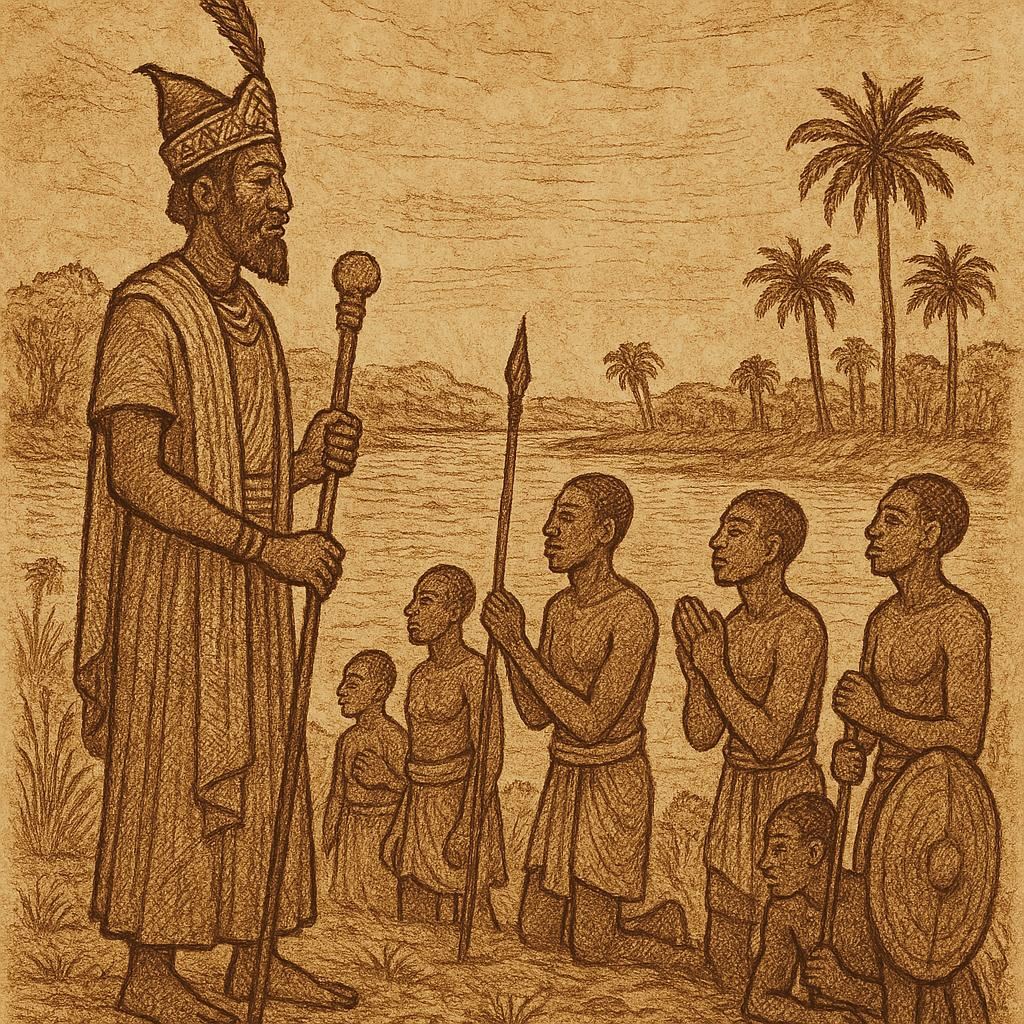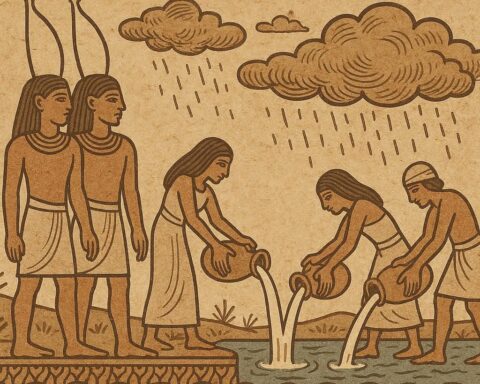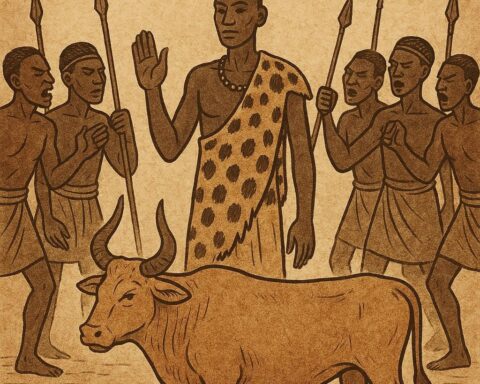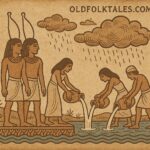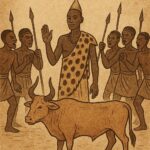Long ago when the Shilluk people lived close to the banks of the great Nile they spoke often of Nyikang, the culture hero who was more than a man. His story was not only about power or conquest but about identity and the bond between people and their ancestors. Even today in every coronation of a Shilluk king the name of Nyikang is spoken, for he remains the spirit king who never left his people.
Nyikang was born to a royal lineage, the son of Okwa, a king whose bloodline carried both human and divine threads. As a young man Nyikang showed the strength of a leader but also the vision of a seer. He believed that the people needed more than weapons or cattle to hold them together. They needed a spirit that would outlive mortal kings and bind the generations into one people.
But life in the Nile Valley was never without strife. Legends tell of quarrels between brothers, of inheritance disputes that tore apart royal families. Nyikang too found himself in conflict, and from this struggle came the journey that would define his destiny.
READ THIS: The Rope Between Heaven and Earth
With a loyal band of followers Nyikang left his father’s land. His departure was not simply exile, it was the beginning of a pilgrimage. The people who went with him carried not just their belongings but also their hopes for a new kingdom. Together they crossed rivers and plains, seeking a place where they could build a future untouched by the quarrels of the past.
The journey tested their endurance. The Nile swelled with floods that threatened to sweep them away. The sun scorched the land and hunger gnawed at their bellies. Yet Nyikang did not falter. His words gave courage and his vision gave direction. He told them that the ancestors walked with them and that the land would open its arms to those who respected both river and sky.
In time Nyikang and his followers reached a fertile stretch of land near the White Nile. Here they built their settlements and here the Shilluk kingdom was born. Nyikang became their first ruler, but more than that he became the symbol of their unity. He was not only king of the living but also the bridge to the ancestors.
As he grew older Nyikang understood that his life as a man would one day end, but his spirit could remain. He gathered his people and told them that kings might die but the kingship would never perish. Each successor would carry his spirit, and through ritual he would always be present.
Death did not claim Nyikang in the way it claims ordinary men. Instead he entered the realm of the ancestors and rose as a spirit king whose presence lingered in every coronation, every ritual, and every oath of loyalty.
From that time on when a Shilluk king ascended the throne the ceremony was not merely political, it was sacred. Priests and elders called upon Nyikang, inviting his spirit to descend into the new king. The king was no longer just a man but the living vessel of Nyikang’s authority. In this way the Shilluk kingdom carried a divine legitimacy that no spear could overthrow.
Generations passed, but the name of Nyikang remained as strong as the current of the Nile. In times of conflict his spirit was invoked to remind the people that they were bound by more than land or cattle, they were bound by a shared ancestor whose vision still guided them.
The story of Nyikang is more than legend. It is the foundation of Shilluk kingship and identity. By remembering him the Shilluk affirm that their strength lies in continuity, in the unbroken chain between the living and the dead, between earthly rulers and the spirit king who watches over them still.
Moral Lesson
The story of Nyikang the Spirit King of the Shilluk teaches that leadership is more than temporary rule. True authority is carried in continuity through the bond between the living and the ancestors. The tale reminds us that unity and identity are preserved when people honor their roots and respect the spirit of their forebears.
Knowledge Check
Who was Nyikang in Shilluk tradition?
Nyikang was the culture hero and first king of the Shilluk who became a divine spirit king after death.Why did Nyikang leave his father’s land?
He left due to conflict and disputes within his family which led him to start a new journey with his followers.How did Nyikang’s followers survive their difficult journey?
They survived through Nyikang’s courage and vision as he encouraged them and reminded them that the ancestors walked with them.What made Nyikang more than just a king?
Nyikang was seen as both a ruler of the living and a bridge to the ancestors, whose spirit continued to guide the Shilluk.How is Nyikang honored during the coronation of Shilluk kings?
Priests and elders call upon his spirit to descend into the new king, making the king a living vessel of Nyikang’s authority.What does the story of Nyikang symbolize for the Shilluk people?
It symbolizes unity, identity, and the importance of honoring ancestors to preserve strength and legitimacy.
Source: Shilluk oral tradition, South Sudan. Recorded by James George Frazer in The Golden Bough (1913) and elaborated by E.E. Evans-Pritchard (1948).
